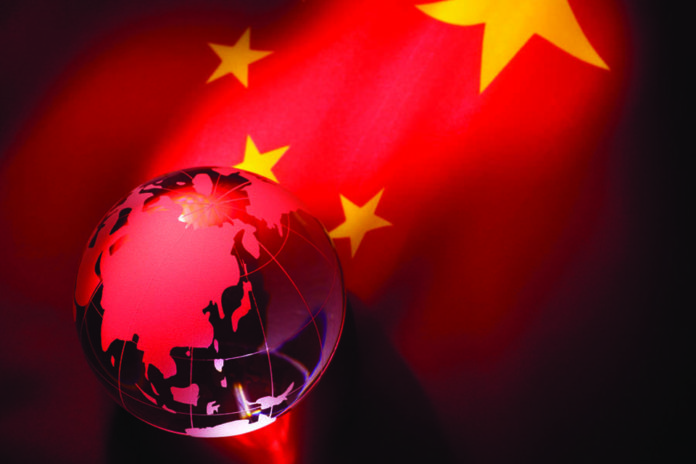My company Internet 2.0 was instrumental in uncovering the details of the vast database built by Chinese company Zhenhua Data. What we uncovered shocked the world.
Canberra: The Internet has brought the world a digital revolution with an economic uplift, but it has also brought a dark underbelly of quietly built government surveillance powers. Throughout the previous “war on terror” an inexorable trend has been the growth and ambition of surveillance. Many democratic governments justify this with a contemporary argument that hackers and child exploitation offenders have an asymmetric advantage to law enforcement. In this argument they are technically correct. The Chinese Communist Party (CCP), however, does not need justify their surveillance capability. And as the Overseas Key Information Database (OKIDB) story revealed, they are very eager to breach our laws.
My company Internet 2.0 was instrumental in uncovering the details of the vast database built by Chinese company Zhenhua Data. What we uncovered shocked the world, as it proves China’s profiling of millions of people across the world in a breadth of intimate detail not seen before.
From government officials, to the developers of technology, over 10,000 Indian citizens had extensive profiles developed by Shenzen Zhehnua. This database, utilised advanced targeting and classification tools. This included millions of entries of captured data of key decision makers and innovators.
Firstly, on a personal note, my greatest respect and admiration to the bravery of the activists involved in passing this data to the democratic world. It is no doubt the greatest and most secret part of this story. They risk death and hence their identity should be protected, so their story will remain untold.
China drives competition between its offensive cyber units by maintaining a large number of independent teams. Their level of centrality and the relative control of the Government over these units is subject to much debate. So too, this trend has overlapped into intelligence collection. The Shenzen Zhenhua Data Information Technology Co. fits this pattern. Both an established company and a partner of state security entities with its founder, perceiving other powers to be much further ahead, encouraging the Chinese state to increase its surveillance capabilities. He fits within the grey area of having a perceived economic distance to the CCP but remaining part of its autocratic infrastructure. What is clear is his intent, financially rewarded by the CCP, to push their concept of a surveillance state into our free and open Internet.
In the process of constructing this capability, the company has violated the privacy of millions of global citizens, the terms of service of just about every major social media platform and hacked other third party systems in their hunger for data. However, the resulting capability they have built is distinguished from western intelligence practices.
In western democracies the trend is to protect the citizens’ right to privacy governed under a legal framework balancing the principles of protecting both individual and society. This leads to the technical requirement of surveillance to require judicial approval or legal basis to commence. What occurs at a tactical level is an inability to build large data lakes internal to government institutions because of this need to satisfy legal constraints. Obvious examples of this restraint are seen in Australia enforcing telecommunications companies to retain meta data but restraining the data to the telecommunications companies. Another example is the legal result where in 2015 the US appeals court ruled that bulk collection of telephone metadata by the National Security Agency was illegal.
Shenzen Zhenhua has built this capability without legal constraints. The capability outputs are so valuable they can track naval vessels and military assets in real time with access to social media metadata. They can assess the careers of military officers with clear access to US service records. In the process they have mapped social media networks across influence networks. Looking for influence opportunities on family members with sometimes dark outcomes by accessing criminal data on a person’s immediate social and familial network. This resulted in giving scores to the children of politicians against a perceived value, and they have mapped criminal networks from the cartels of Mexico, to the Yakuza of Japan. Chillingly, they have targeted janitors in sensitive university labs, identified intelligence officers, the next commanders of warships and psychologically profiled world leaders.
Citizens, business and governments across the globe should be worried. Every digital move you make is being watched, tracked, and analyzed for leverage, coercion or worse.
The resulting capability is a diverse range of insights and unique information with the sole intent of advancing the Chinese Communist Party’s ideological ideas and increasing their financial leverage in areas of trade. As the story unfolds, I assess that the Chinese Communist Party might feel superior because they had the ability to build the OKIDB. But I think they do not have the legs to stand next to it because as we continue to expose them, the winds of democratic public interest will howl in horror as all the similar examples begin to come to light. More activists will emerge and China is clearly not ready for this new reality of being yet powerful but held to account by democracy itself.
Stay tuned. More is coming.
Robert Potter is Co-Founder & Chief Executive Officer, Internet 2.0

